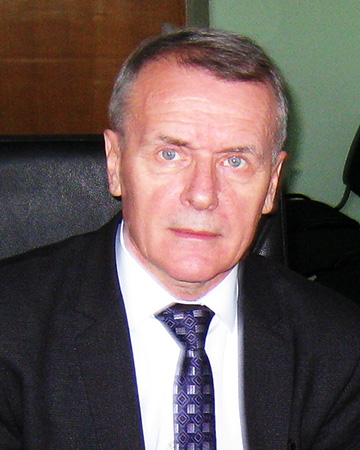|
 UDC 332.02:332.1; JEL O18, R11, R58
UDC 332.02:332.1; JEL O18, R11, R58
Zhuk, P. V. (2025). Dyferentsiatsiya pidkhodiv do derzhavnoyi pidtrymky hirs'kykh terytoriy v Ukrayini [Differentiation of approaches to state support for mountain areas in Ukraine]. In Sotsial'no-ekonomichni problemy suchasnoho periodu Ukrayiny [Socio-Economic Problems of the Modern Period of Ukraine]: Vol. 171 (1) (pp. 75-80). DOI: https://doi.org/10.36818/2071-4653-2025-1-10 [in Ukrainian].
Sources: 9
Authors
Zhuk Petro VolodymyrovychPh.D. of Economics, Senior Researcher, Honored Worker of Science and Technology of Ukraine
Leading Researcher of the Department of regional ecological policy and environmental management of the Dolishniy Institute of Regional Research of NAS of Ukraine
Contacts:  pzhuk@ukr.net, pzhuk@ukr.net,  (032)270-7037 (032)270-7037
Webpages:         
ResumeThe article considers the issues of state support for the socio-economic development of mountain areas, the identification of support objects, their categorization, and the differentiation of support instruments by selected groups of mountain areas. The author suggests that territorial communities including settlements that have been granted the status of mountain ones (mountain territorial communities) should be considered as objects of support. The need to take into account the socio-economic indicators of mountain territorial communities when choosing tools for implementing the state policy to support their development is emphasized. Approaches to the categorization of mountain territorial communities by levels of economic competitiveness and social development are substantiated. The communities are grouped according to their economic capacity, with three groups of communities identified: economically competitive, problematic, and crisis communities. The problems of the information base for such a division of communities are outlined taking into account social indicators: the dynamics of the number of available population and its employment rate. Suggestions for amendments to the legal acts regulating the state support for the socio-economic development of mountain areas are offered. In particular, the author suggests amending the Law of Ukraine «On the Status of Mountain Settlements in Ukraine» to provide guarantees for the socio-economic development of settlements granted the status of mountain ones, taking into account the level of economic competitiveness of the territorial communities of which they are part. As for the communities of group I (economically competitive), the article suggests limiting the benefits provided by law to citizens living in the territory of a settlement granted the status of a mountain one. As for the communities of group II (problematic), the article suggests strengthening the application of the horizontal budget equalization tool by supplementing the procedure for calculating the basic subsidy with the introduction of an additional compensatory mountain coefficient, increasing the amount of educational and healthcare subventions, and making wider use of the tools of the State Regional Development Fund, etc. to improve the infrastructure of communities. Support for Group III (crisis) communities should be aimed at accelerating economic development and building social, communal, engineering, and environmental infrastructure, which requires the involvement of mechanisms to stimulate private sector investment to accelerate their economic growth.
Keywords:mountain areas, mountain territorial communities, economic competitiveness, categorization, differentiation of development support
References- Agenda 21 (1992). United Nations. Retrieved from https://sustainabledevelopment.un.org/content/documents/Agenda21.pdf
- Maksymenko, S. (2018). Rozvytok hirs’kykh terytoriy: kontseptual’ni pidhody YeS [Mountain areas development: EU conceptual approaches]. In Mozhlyvosti rozvytku hirs’kykh terytoriy v umovakh reformy detsentralizatsiyi [Mountain areas development opportunities under the decentralization reform] (pp. 10-13). Kyiv. Retrieved from https://decentralization.gov.ua/uploads/library/file/293/Mountain-areas.pdf [in Ukrainian].
- Pityulych, M. M. (2015). Hirs’ki terytoriyi Ukrayins’kykh Karpat: suchasnyy stan ta perspektyvy rozvytku [Mountain areas of Ukrainian Carpathians: current condition and development perspectives]. Uzhhorod. [in Ukrainian].
- Tkachuk, A. (2018). Pro hirs’ki terytoriyi ta mozhlyvosti yikh rozvytku [On mountain areas and their development perspectives]. In Mozhlyvosti rozvytku hirs’kykh terytoriy v umovakh reformy detsentralizatsiyi [Mountain areas development opportunities under the decentralization reform] (pp. 6-7). Kyiv. Retrieved from https://decentralization.gov.ua/uploads/library/file/293/Mountain-areas.pdf [in Ukrainian].
- Fedyuk, V. (2018). Rehional’nyy rozvytok ta pidtrymka hirs’kykh terytoriy: shveds’kyy dosvid dlya Ukrayiny [Regional development and mountain areas support: experience of Sweden for Ukraine]. In Mozhlyvosti rozvytku hirs’kykh terytoriy v umovakh reformy detsentralizatsiyi [Mountain areas development opportunities under the decentralization reform] (pp. 28-32). Kyiv. Retrieved from https://decentralization.gov.ua/uploads/library/file/293/Mountain-areas.pdf [in Ukrainian].
- Zhuk, P. V. (2021). Hirs’ki problemni terytoriyi Ukrayins’kykh Karpat: identyfikatsiya ta stymulyuvannya rozvytku [Mountain problem areas of Ukrainian Carpathians: identification and development stimulation]. Rehional’na ekonomika – Regional Economy, 101(3), 57-66. DOI: https://doi.org/10.36818/1562-0905-2021-3-6 [in Ukrainian].
- Zhuk, P. V. (2023). Terytorial’nyy rozvytok, pryrodne dovkillya, ekonomika: naukovi rozvidky [Territorial development, natural environment, economy: scientific exploration]. Lviv. Retrieved from http://ird.gov.ua/irdp/p20230001.pdf [in Ukrainian].
- Mistsevi byudzhety [Local budgets] (2025). Open Budget: Website. Retrieved from https://openbudget.gov.ua [in Ukrainian].
- Decentralization: Website (2025). Retrieved from https://decentralization.ua/newgromada [in Ukrainian].
|